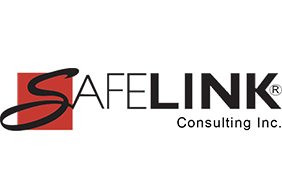What is a Quality Management System (QMS) Internal Audit and why is it so important? Understanding the purpose and accepting the value of a Quality Audit is vital for the effectiveness of an audit program. Here you will find answers to assist your business in not only meeting FDA compliance for auditing but also in determining the effectiveness of your system to continuously improve quality, productivity, and customer satisfaction.
A Quality Management System (QMS) Audit or survey is the on-site verification activity, such as inspection or examination, of a process or quality system, to ensure compliance to requirements. Audits are an independent and unbiased evaluation of your existing practices to determine if a business complies with policies, contract commitments and regulatory standards. An audit can apply to an entire organization or might be specific to a function, process, or production step. An internal audit assists a business in discovering small snags before they become intrusive complications.
Different types of audits can be used to help an organization improve efficiencies and business results. An organization should not only consider a QMS audit an FDA obligation, but also a way to better the business. Upper management should actively get involved in the quality system. Their outlook should not just be about documentation, but more the continual usefulness of the system to progress the quality, productivity, and customer satisfaction.
Here are useful quality audits with some applications:
Compliance Audit - This audit is evidence of whether standards are being met or not at the time an audit occurs. It assesses the efficacy of the QMS to determine where corrective action is needed. It serves to ensure that the organization is conforming to FDA requirements and other regulatory bodies including OSHA, environmental regulations, state regulatory boards and agencies, as well as local government ordinances and regulations. Businesses, such as dental labs, should audit their quality system at a frequency that ensures conformance. FDA typically looks for an annual audit, but if the business model is fairly simple, such as for a small traditional lab, then the inspector would really look at the effectiveness of the audit process more than the frequency of the audits. Go to FDA §820.22 Quality Audit.
Systems Audit - This audit evaluates the quality program to determine if it’s conforming to company policies, contract commitments, and regulatory requirements such as FDA. It is performed to determine if company policies in place are still relevant to the business activities. It helps to find any gaps or non-conformances to regulatory requirements in preparation for an inspection by FDA.
Process Audit - This audit verifies that process procedures such as QMS Standard Operating Procedures and Work Instructions are being followed under various conditions such as standard conditions, rushed conditions, and adverse conditions. It can be used if suspicion that something has changed in the process that has caused non-conforming product to become an issue. It can also be used to streamline processes to improve workflow.
Product Audit - This audit assesses the inspection process in a completed stage of production and has passed the final inspection, such as, a method of re-inspecting a product that has been released for distribution to the customer. It allows the business to focus on internal quality control issues to determine where and when product quality diverged from the expectations of the customer.
Registration Audit - This audit is typically used with international trade to verify that the parties are used to assess the compliance of suppliers working across international boundaries. Businesses who wish to obtain a certification to a voluntary standard such as ISO would use this type of audit which is really a Systems audit based upon the standards of the certifying body. Businesses need to know that their subcontractors and vendors are appropriately registered with FDA if required. This audit can be used to support supplier and subcontractor approval along with an operational audit of the supplier/ subcontractor’s facility.
Operational Audit - This audit ensures that employees are meeting performance standards that have been established by the organization.
Reasons for Auditing
Reasons for auditing include evaluation of your competitive edge, pre-audit assessment, and continuous improvement. Results of quality assurance audits or surveys are used to identify problems, reduce costs, assess personnel competency, review equipment maintenance programs, provide visible management support, ensure adherence to process standards, determine system effectiveness, and identify system inefficiencies.
While most audits are conducted for compliance or conformity with particular standards, the results of the audit can be used to:
• Identify actual problems or potential risks so they can be corrected & prevented
• Reduce the costs associated with non-conformances
• Identify areas of opportunity for continual improvement
• Assess competency of personnel through training effectiveness
• Review equipment maintenance programs
• Provide visible management support of the HSP and QMS
• Ensure ongoing compliance and conformity to regulations and standards
• Determine system and process effectiveness
• Identify system and process inefficiencies
Auditing is an evolutionary process, however, the purpose of the audit will always be to provide meaningful information upon which to base decisions. The ultimate goal is to improve operations so the the workplace is safe and healthy and the cost of quality remains low.
Learn more about FDA Dental Regulations.
As a certified quality auditor myself, the most important recommendation I could make is that the business or lab should ensure that everyone in the organization is familiar with the quality system and its purpose. Everyone should know where information is maintained and how to access it. Prepare everyone for the audit process so that they are not caught off guard during the audit.
Contact us for assistance with a Quality Management System for your business.
Learn more about what SafeLink Consulting can do to help your business with compliance services, including safety compliance, to meet OSHA training requirements and quality system consulting to meet FDA compliance. SafeLink Consulting assists businesses with workplace safety training, infection control training, HIPAA training online, quality management systems, assessments, audits, due diligence, and more.
Industries include:
Dentistry compliance - assisting the dental practice with meeting requirements for OSHA, HIPAA, EPA, and CDC guidelines, patient safety and employee health & safety
Dental Laboratory compliance - assisting the dental lab with meeting requirements for OSHA, FDA, and CDC guidelines, employee health & safety, QMS - Quality Management Systems, plus FDA requirements for lab manufacturing custom implant abutment /GMP for medical device manufacturers
Medical Device Manufacturers compliance - assisting with meeting OSHA compliance & FDA requirements, GMP - good manufacturing practices
General Industry compliance - assisting with OSHA compliance and FDA compliance as it pertains to the specific business
Beverage Industry compliance - assisting beverage businesses such as the craft brewery, winery, cidery, distillery, vintner with meeting OSHA compliance, health & safety, FDA requirements / GMP - Good Manufacturing Practices.
Get notification when new regulatory compliance training courses are added plus upcoming events by subscribing to our email news.






Leave Comment